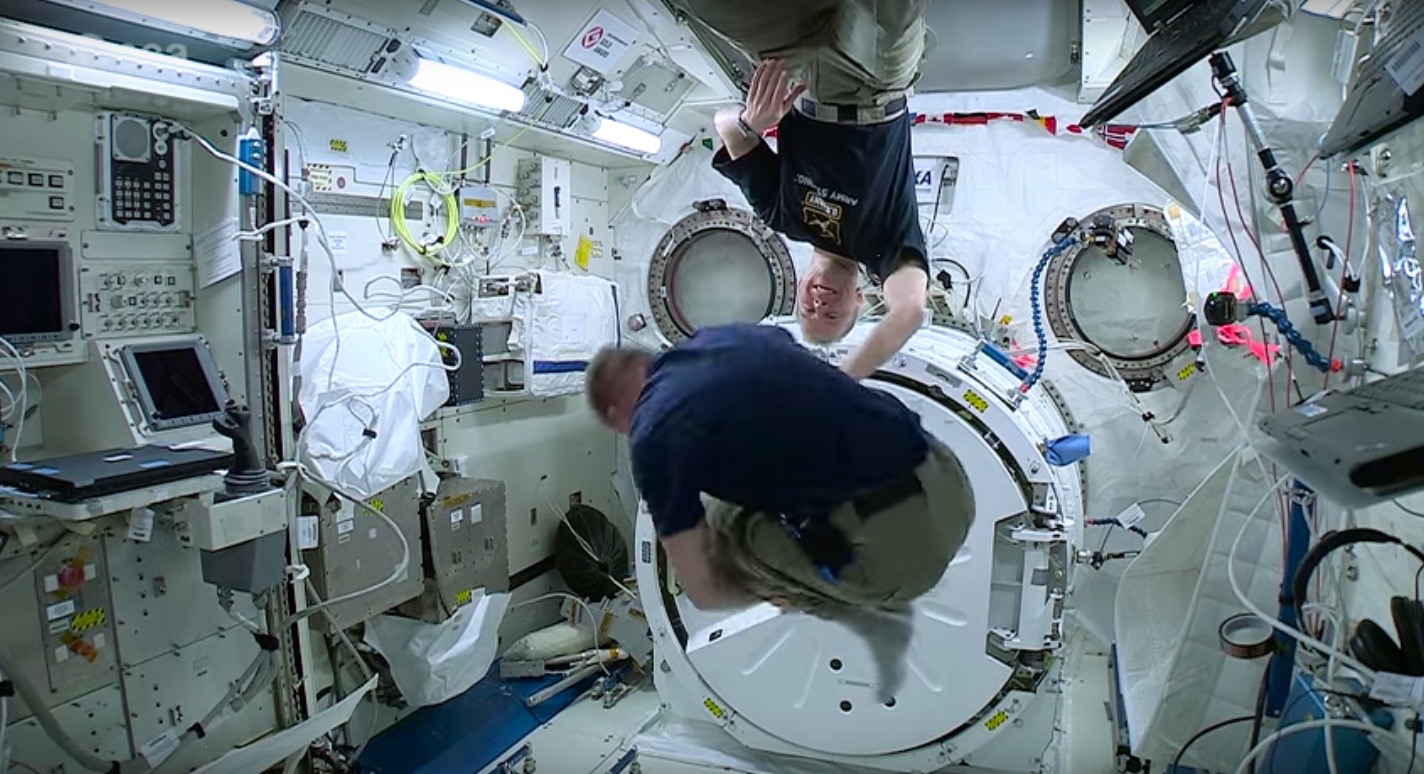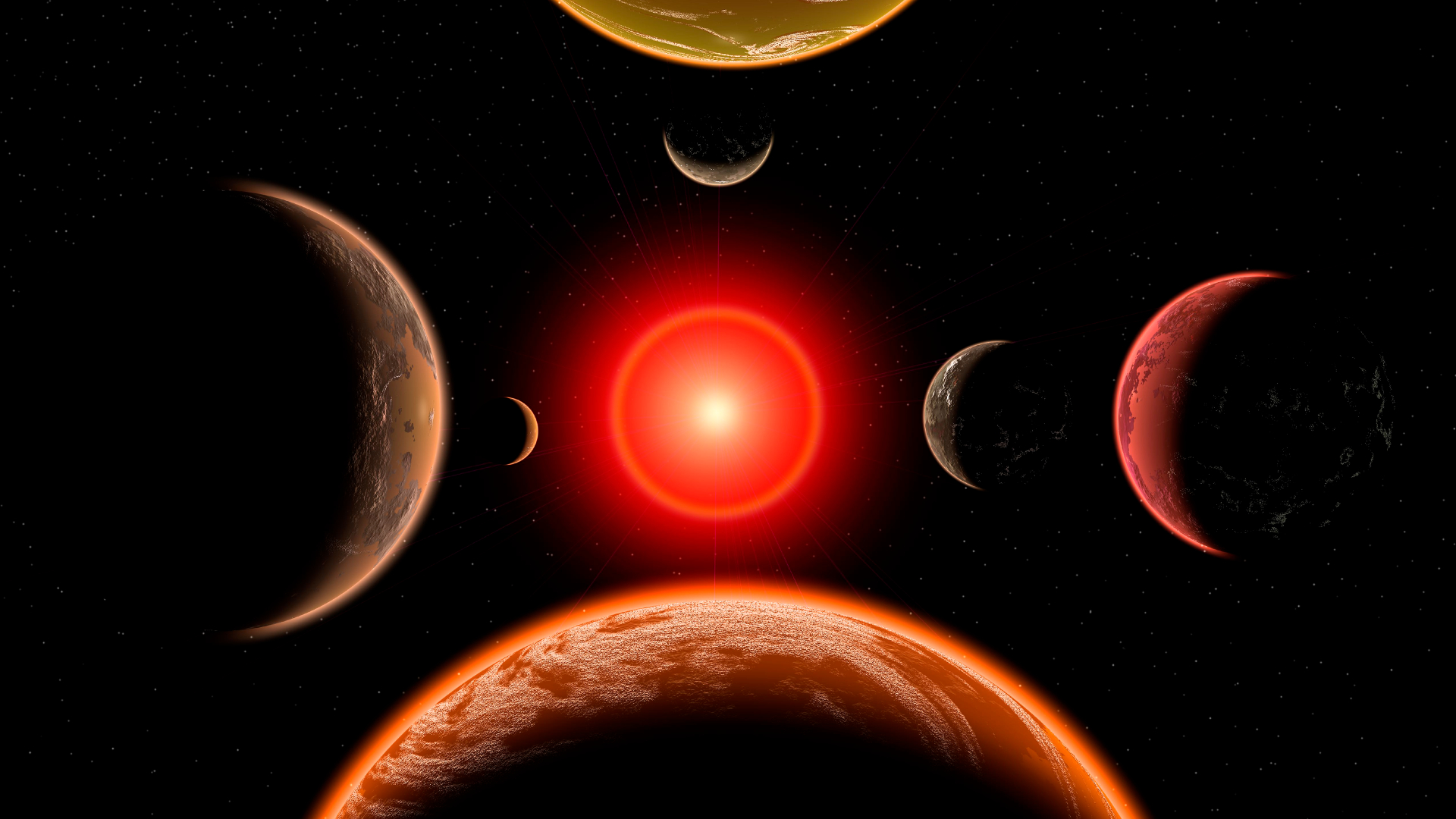Watch British Astronaut Tim Peake Perform Dizzying Somersaults in Space

Tim Peake did 80 rapid-fire somersaults aboard the International Space Station (ISS) in an attempt to make himself dizzy — a plan the British astronaut joked could be the "worst idea I've ever had."
NASA astronaut Tim Kopra help spin the curled-up Peake, who wanted to see how well his body had adjusted to microgravity after nearly six months aboard the ISS. (You can watch Peake spin round and round in the video here.)
"Something that happens when astronauts first come into space is that they usually feel pretty rough for about the first 24 hours," Peake said before starting the experiment. This is because the body's vestibular system gets confused in space, he added. The fluid in the middle ear floats in microgravity, which doesn't jibe with the signals the eye sends to the brain, he explained. [The Human Body in Space: 6 Weird Facts]
After a day or two in space, Peake said, the brain shuts down the vestibular system and relies just on visual information to get its bearings.
"You can turn yourself around in all sorts of orientations, around, upside down, spinning about, and it doesn't really matter," a rapidly rotating Peake said in a video documenting his experiment, which was posted Sunday (June 12). "Your brain is able to cope in that situation."
But Peake decided to test this out anyway, by spinning dozens of times with Kopra's help. Peake discovered that for the most part, he felt just fine. Even when he moved his head during the spin — a "provocative" gesture, he joked — he still felt OK.
"Faster?" Kopra asked about halfway through.
Breaking space news, the latest updates on rocket launches, skywatching events and more!
"That's fine — go for it, that's good," Peake responded, adding that he didn't feel sick even as the G-forces sent fluid to the top of his head.
"I'm feeling absolutely fine," Peake said after more than a minute of spinning. "That's quite remarkable. At this point on Earth, I think I'd be feeling very, very unwell."
When the spinning finally stopped, Peake fell flat on to the "floor" of the station and said he felt dizzy. But that passed within about 10 seconds, Peake reported, saying, "I definitely felt dizzy, initially, and now it's gone."
"No — that quick?" Kopra asked.
"Completely," Peake answered. "It's normal."
"Amazing," Kopra said.
Peake, Kopra and Russian crewmate Yuri Malenchenko will return to Earth on Saturday (June 18), about two weeks later than originally planned. While in space for his six-month mission, Peake ran a full marathon on the space station's treadmill during the London Marathon on Earth, clocking a time of just over 3.5 hours.
Follow Elizabeth Howell @howellspace, or Space.com @Spacedotcom. We're also on Facebook and Google+. Originally published on Space.com.

Elizabeth Howell (she/her), Ph.D., was a staff writer in the spaceflight channel between 2022 and 2024 specializing in Canadian space news. She was contributing writer for Space.com for 10 years from 2012 to 2024. Elizabeth's reporting includes multiple exclusives with the White House, leading world coverage about a lost-and-found space tomato on the International Space Station, witnessing five human spaceflight launches on two continents, flying parabolic, working inside a spacesuit, and participating in a simulated Mars mission. Her latest book, "Why Am I Taller?" (ECW Press, 2022) is co-written with astronaut Dave Williams.
